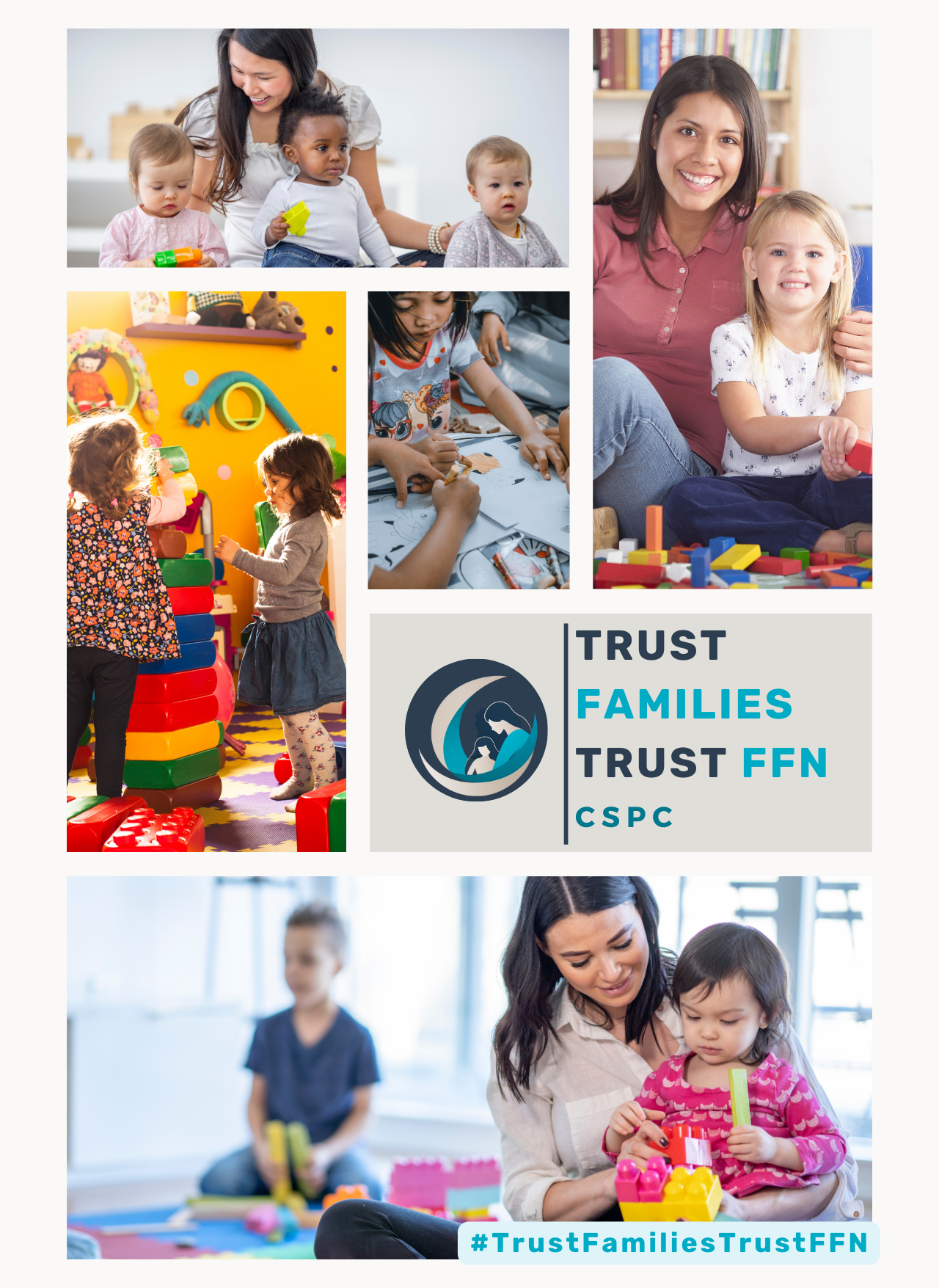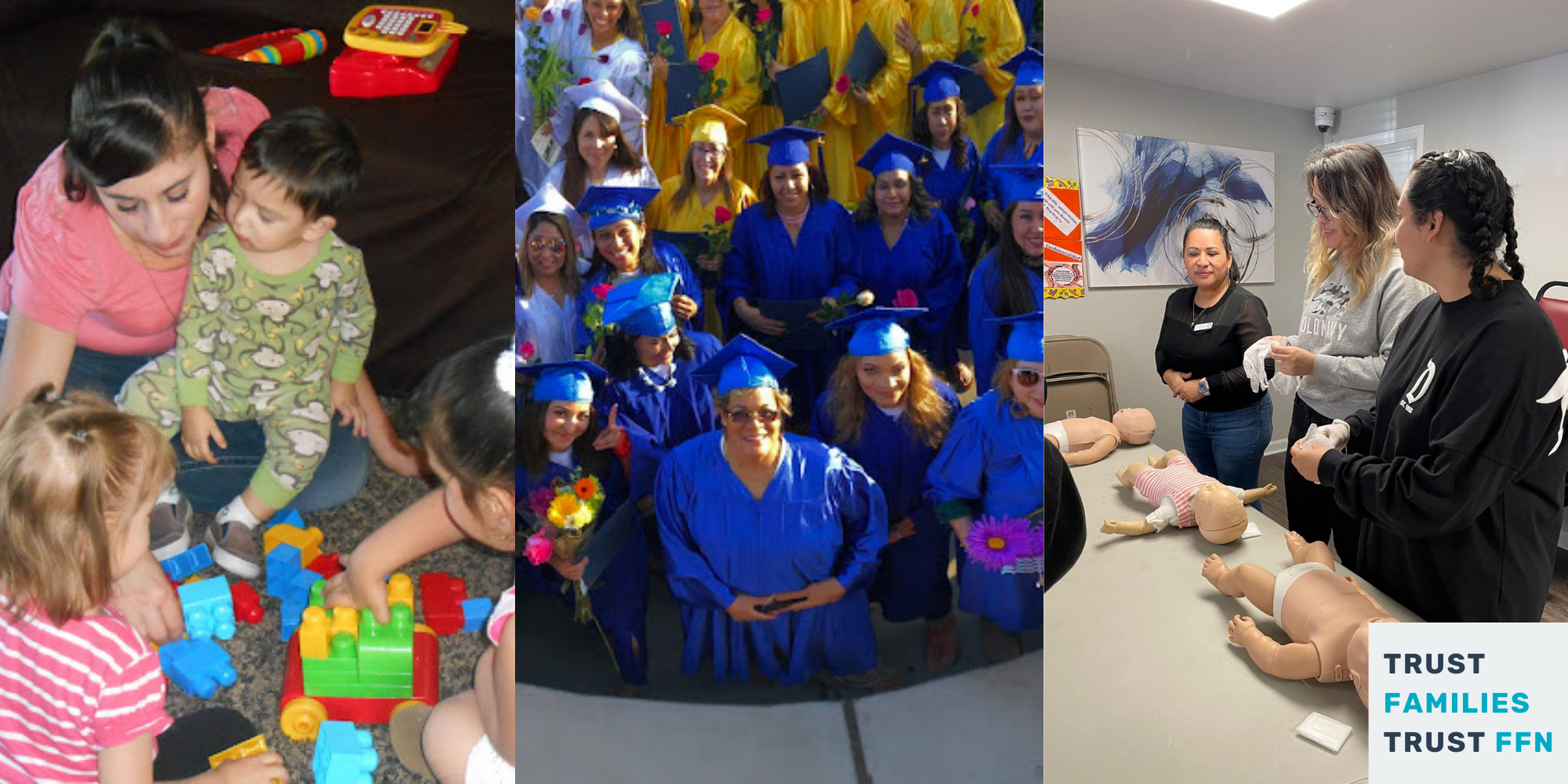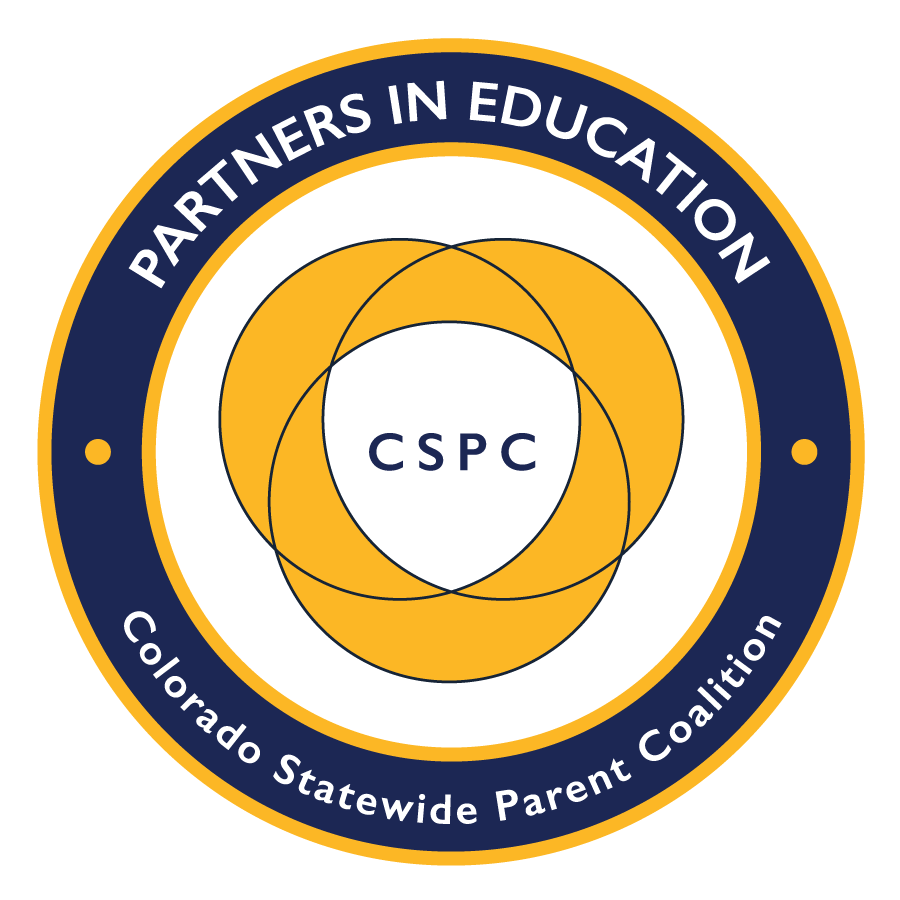The Power of FFN Providers
Unlocking the Potential of Family, Friend, and Neighbor (FFN) Providers Through PASO
The formative years of a child’s life are pivotal for their overall development and future success. Early childhood education and care (ECEC) have a profound impact on a child’s cognitive, social, and emotional growth. While childcare in licensed centers or licensed family childcare homes are valuable options, there exists another, often underestimated group of caregivers who wield tremendous influence: Family, Friend, and Neighbor (FFN) providers.

FFN providers are individuals who extend childcare services within their homes or social circles for children in their families, in their neighborhoods or for their friends. This compassionate network of caregivers includes grandparents, aunts, uncles, neighbors, and close family friends. They serve as a lifeline for many families, particularly in underserved communities. Unfortunately, their pivotal role in early childhood education often escapes the notice of policymakers for investment in sustainability or professional development.
Enter the PASO (Provider advancing Student Outcomes) program, a transformative initiative from the Colorado Statewide Parent Coalition, that recognizes the significance of FFN providers in the early education ecosystem and empowers them to deliver high-quality care.

Empowering FFN Providers
PASO equips FFN providers with the training and resources necessary to offer developmentally appropriate care and education to the children under their care. Through PASO, these caregivers gain insights into child development, best practices in early education, and the science of creating enriching environments for young learners.
Promoting Equity
PASO serves as a powerful tool for promoting equity in early childhood education. Many FFN providers cater to children from marginalized communities, largely immigrant and refugee, families living with limited resources, children with disabilities, and in rural communities. By enhancing the quality of care they provide, PASO helps level the playing field for these youngsters.
Supporting Families
FFN providers are often trusted allies for the families they serve, especially for Dual Lanugage Learners (DLL) and children with disabilities. They offer culturally sensitive care that respects each child’s unique background and needs. PASO strengthens this bond by imparting FFN providers with the skills needed to effectively engage with families and connect them to additional community resources when necessary.

Why Policymakers Should Take Notice:
Expanding Access: By investing in training programs like PASO and other effective, community-based FFN training programs, policymakers ensure that FFN providers possess the skills and knowledge to provide outstanding care to children under their care. investing in the sustainability of FFN providers through thriving wages, materials, and access to subsidy programs will secure a strong early childhood network for years to come.
Improving Outcomes: Extensive research indicates that children who receive high-quality early education are more likely to excel in school and life. Supporting FFN providers through programs like PASO can lead to enhanced outcomes for the children they nurture, benefiting society as a whole.
Addressing Disparities: FFN providers often represent the sole affordable childcare option for many families, especially in low-income and rural communities. Recognizing and supporting FFN providers can help alleviate disparities in access to quality early education.
Economic Benefits: High-quality early childhood education has been associated with increased workforce participation and reduced reliance on social services. Policymakers can realize a return on investment by supporting FFN providers and ensuring they deliver quality care.

The PASO program transcends education; it signifies empowerment, equity, and an improved future for children and families. Policymakers wield a pivotal role in acknowledging the significance of FFN providers and supporting programs like PASO that enable these caregivers to offer top-tier early education.
Understanding the influence of FFN providers and the potential advantages of initiatives like PASO, policymakers can make informed decisions that benefit children, families, and society at large. Investing in early childhood education in all settings, including through FFN providers, amounts to an investment in a brighter future for all.
